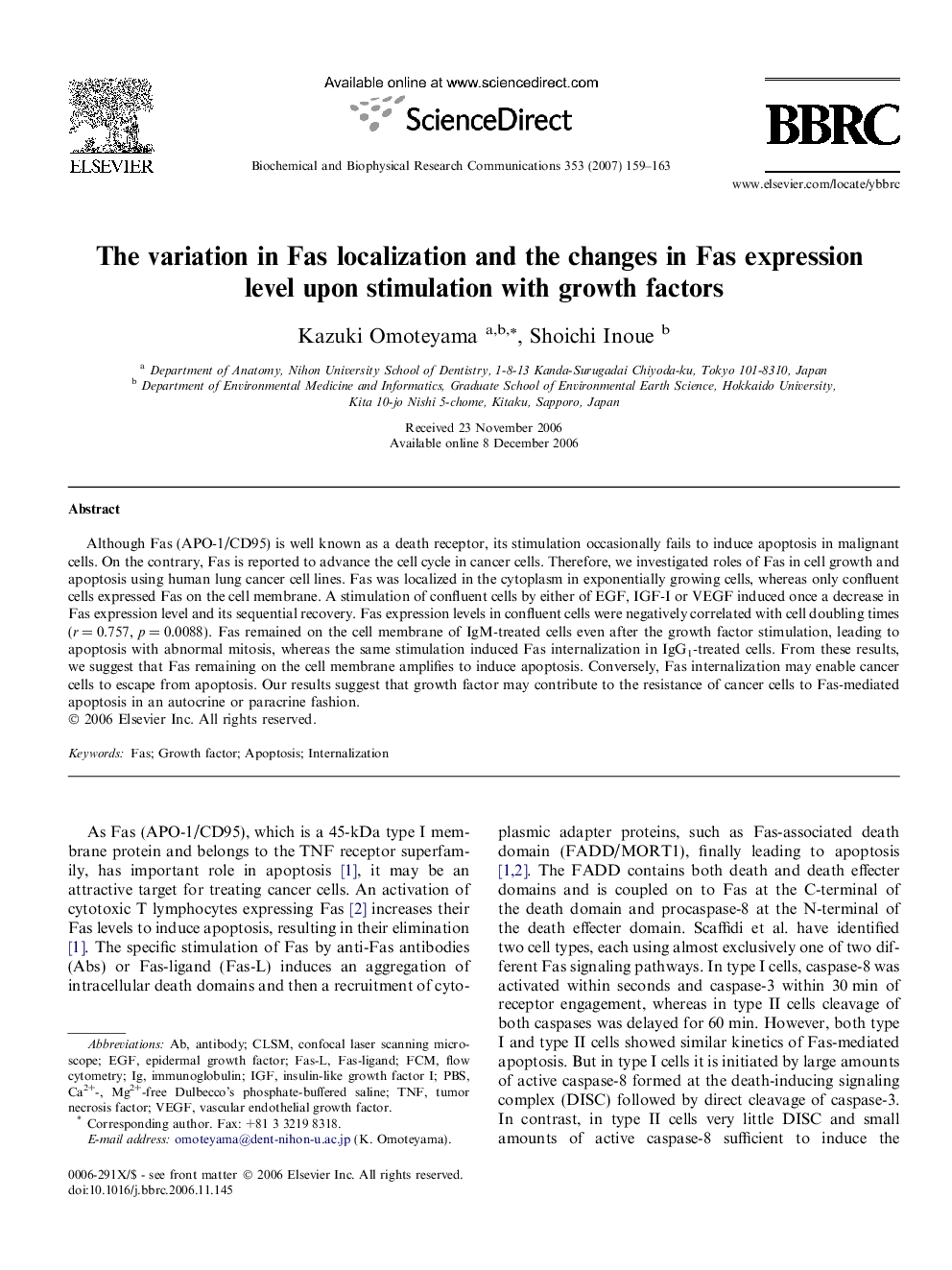| Article ID | Journal | Published Year | Pages | File Type |
|---|---|---|---|---|
| 1938069 | Biochemical and Biophysical Research Communications | 2007 | 5 Pages |
Abstract
Although Fas (APO-1/CD95) is well known as a death receptor, its stimulation occasionally fails to induce apoptosis in malignant cells. On the contrary, Fas is reported to advance the cell cycle in cancer cells. Therefore, we investigated roles of Fas in cell growth and apoptosis using human lung cancer cell lines. Fas was localized in the cytoplasm in exponentially growing cells, whereas only confluent cells expressed Fas on the cell membrane. A stimulation of confluent cells by either of EGF, IGF-I or VEGF induced once a decrease in Fas expression level and its sequential recovery. Fas expression levels in confluent cells were negatively correlated with cell doubling times (r = 0.757, p = 0.0088). Fas remained on the cell membrane of IgM-treated cells even after the growth factor stimulation, leading to apoptosis with abnormal mitosis, whereas the same stimulation induced Fas internalization in IgG1-treated cells. From these results, we suggest that Fas remaining on the cell membrane amplifies to induce apoptosis. Conversely, Fas internalization may enable cancer cells to escape from apoptosis. Our results suggest that growth factor may contribute to the resistance of cancer cells to Fas-mediated apoptosis in an autocrine or paracrine fashion.
Keywords
Related Topics
Life Sciences
Biochemistry, Genetics and Molecular Biology
Biochemistry
Authors
Kazuki Omoteyama, Shoichi Inoue,
